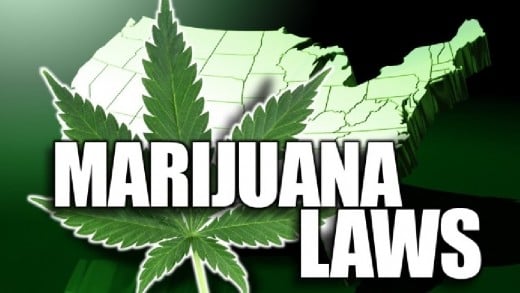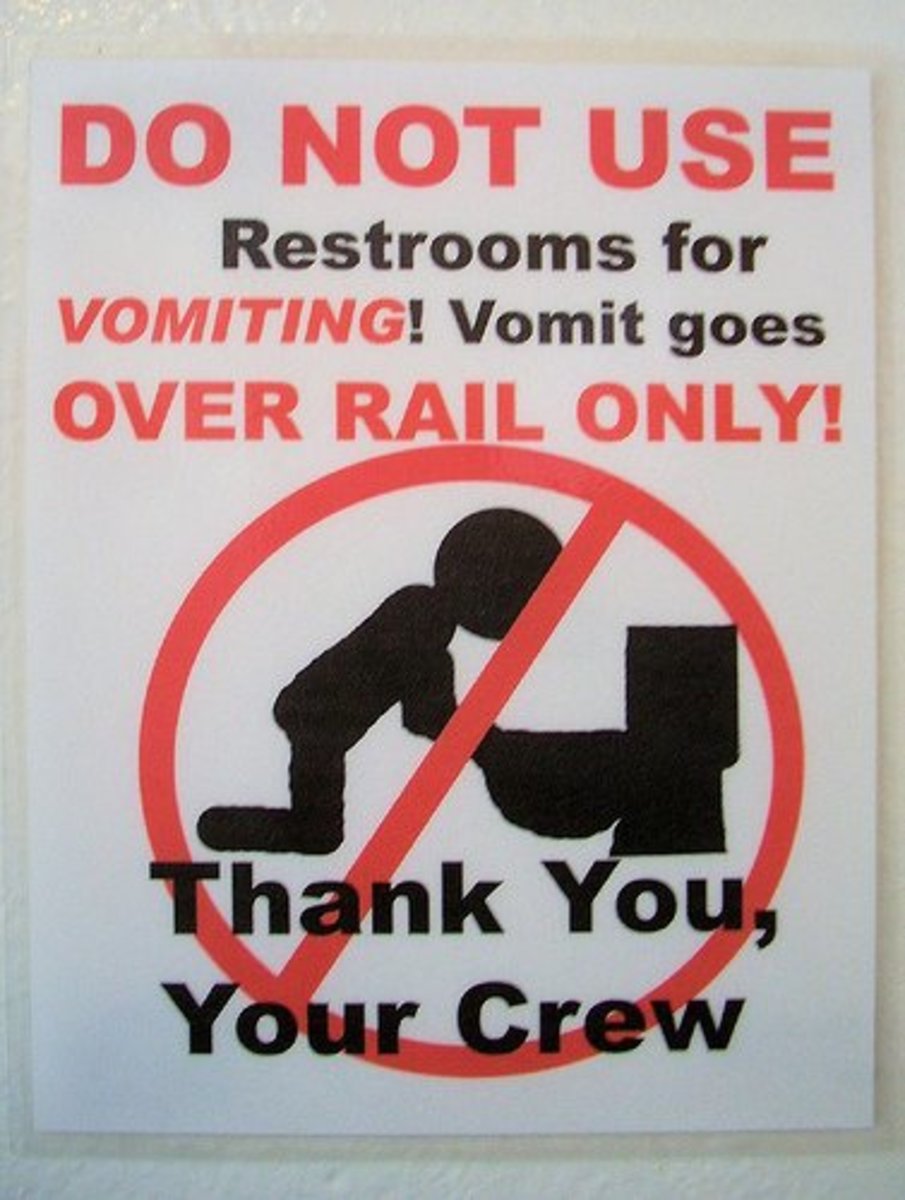- HubPages»
- Health»
- Mental Health»
- Addiction»
- Drug Addiction
Marijuana Friend of Foe?

Marijuana Friend of Foe?
Marijuana – friend or foe? This question is one of controversy. To some, marijuana is a friend that takes away the pain from illness, but what about the rest of the world? Is it still a friend for the ones that use it for recreational purpose? To many, marijuana has replaced prescribed relaxation methods. Why go to the doctor when I can just smoke a joint?
To be honest, I have never smoked marijuana in my life, and at this point I have no intention of doing so. Having said that, I have friends and acquaintances who smoke it on a regular basis. Therefore, this is what I am basing my observations on. What are the effects of recreational marijuana use?
First, a little history of the little plant in question. Did you know that the use of this plant can be traced back to 6,000 B.C? Records have been found that indicate China was using the cannabis seeds for food. From there, history tells us that hemp was used for textiles in China in 40,000 B.C., but in 2,727 B.C., we have the first record of cannabis being medicinal. There’s proof that throughout history cannabis has been used for a variety of health issues.
So in my mind this begs the question, if marijuana is such a great medicine, why haven’t we been using it before now? It’s not like cannabis/marijuana is a new plant on the world scene. Something to ponder, I think.
Marijuana is a plant often referred to as hemp. Hemp has been used for centuries in the textile industry. The part that is smoked is derived from the flowering tops, stems and leaves of the hemp plant. In the United States, it’s referred to as pot, weed, grass, or reefer. Amongst the people that I’ve talked to, they assure me that weed is one of the most-used drugs in the world. Now, I don’t know about that, but it seems legitimate to me since just about everyone I talk to about it has tried it or still smokes it. For the stats on that, you will have to do your own research because that’s not what this book is about.
I’m a fifty-year-old female, and back when I was going to high school, pot was the most-used form of drug in the school I attended after alcohol. We had something we called the breezeway, a walkway outside that tied two parts of the high school together. You didn’t have to use the breezeway, and in fact, the only ones that used it were the ones who smoked cigarettes or weed.
I grew up in the seventies watching a popular cartoon, the name I can’t mention due to copyright laws, but I think you know the one. One of the characters always had the munchies, and this became the norm for those of us who watched the show. Honestly, as a child it never crossed my mind that the character might be smoking weed, but now I know.
One of the things I’ve observed over years of watching people who smoke marijuana is this: they lose interest in things. They seem happy enough, so happy, in fact, that they will not make an effort to improve themselves. In high school, the ones that smoked weed barely made passing grades.
How Big is the Industry?
Marijuana just keeps growing, pun intended, and marijuana is growing so rapidly that we now must take it seriously, unlike our friends from the cartoon I mentioned. Now politicians are taking notice because marijuana is the United States’ fastest growing business. That sounds like some millionaires in the making. The legal part of the business is expanding rapidly; as I write this, Pennsylvania just legalized marijuana for medicinal use. There are many that consider this a huge win, but there are others who are not only skeptical but downright angry about the entire thing.
According to the Huffington Post, it’s possible that the marijuana business could become bigger than the organic food industry. Personally, I believe that could very well happen. I believe we have a sleeping giant in our midst that is quickly awakening. With each state that legalizes it, the pressure to legalize in other states mounts. Politicians must see dollar signs. In 2014, the legal marijuana business was worth about 2.4 billion dollars, an increase of around 74 percent. This business is nothing to laugh at, people. This is big business.
Weed will be grown illegally anyway, so why not legalize it? This statement is not my opinion. However, the question begs to be answered, but it comes back to the question, is marijuana a friend or foe? It is a personal choice for everyone to use or not to use it.
Why the Controversy?
Ah, we come to the real question to which there are so many answers. The number one reason why this is a controversy is because of its addictive properties. I’ve heard marijuana users say that it’s not addictive, and that’s simply not true. Research has shown that many users become dependent on it and experience withdrawal when they stop using. Marijuana users that become addicted cannot control their use. Does this sound like a drug that’s not addictive?
The second reason is that many people feel as if marijuana affects public safety. Would you want someone high on weed driving your child’s school bus? I know I wouldn’t. How about your doctor? The list goes on. Marijuana affects the users’ judgment and perception, and thus that person has now become a public safety hazard, so to speak. How would you feel if a person high on marijuana killed your loved one because he/she couldn’t judge the distance of something in the road?
The third reason is that many believe the use of marijuana will lead to the use of other, stronger drugs. Whether you believe that or not is up to you. I don’t personally think that applies to every marijuana smoker, but for some it could be true. There are studies ongoing about this very thing.
The fourth reason is obvious. Marijuana impacts the smokers’ health. I worked with someone whose husband smoked week on a regular basis and at forty-four he died of lung cancer. The couple refused to believe it was caused by the marijuana; after all, it’s a natural product, right? But did you know that marijuana has 50 to 70 percent more carcinogens than tobacco? On top of cancer, using marijuana can cause a higher heart rate, heart palpitations and a heart attack.
Marijuana has also been linked to mental problems, such as paranoia, depression, psychotic episodes and anxiety.
On the other hand, there are many who simply don’t believe any of this. So the controversy goes on and on.
Personal Experience
Once again I must be honest in saying that I’ve never used marijuana in any form, but that doesn’t mean I haven’t seen it in action.
These are my observations. The names have been left out and some situations changed to protect the innocent or not so innocent in either case.
First Case
I have a friend who smokes his joint on a daily basis, and sometimes several times a day. He tells me he can’t help it because he needs it to relax and stay calm. His life has gone to crap because of his weed habit. He lost a good job because he couldn’t pass the drug test, so his wife left him. She left him because his habit had been on ongoing problem, one that he refused to do anything about. When she left, she took their two children with her, and now my friend lives in a run-down apartment with a car that barely works and a low paying job. He is paying child support and has been known to live out of his car. What kind of life is that?
This is a vicious circle. He smoked weed to relax and now he’s even more stressed out. What does he do now, you ask? Smokes even more weed.
Second Case
Keep in mind as I tell you this that these are people I know and have first-hand knowledge of. In this case, we have a young couple, and one of them smokes weed regularly. The one that doesn’t smoke weed tells me that the partner is withdrawn from family life, has lost interest, and has become depressed. Not only is the partner depressed, but they no longer have a sex life because the weed smoking partner has lost interest. Do you see a problem here? Well, the one smoking weed doesn’t see the problem, so therefore there isn’t one, right? Wrong.
Third Case
This person, who we will call Joe, loves to smoke his weed. He, like the person in our second case, says he needs it to relax. He will smoke his weed anywhere and everywhere, even in a Disney park with his family. The spouse, who we will call Jane, says it has affected their lives so badly that she’s thinking about leaving him. The only reason she is still with him is because of their son, but she questions that decision daily.
Subsequently, Joe has lost his job for poor decision-making and smoking weed while at work. Now the family is having a hard time because Jane doesn’t make enough money to support the family.
Of course, I know people lose their jobs every day, but to lose it because of something that could have been prevented is just not a smart move. The problem with Joe was he thought he would never get caught.
There are many more stories to tell just like these, but why go on? You get the point. In cases one through three, marijuana is most definitely a foe. Now let’s explore some examples where marijuana may be a friend.
Typical Case
There’s someone I know who recently passed away. She suffered from cancer and fibromyalgia. Fibromyalgia is a disease that attacks the nerves in your body, causing movement to be extremely painful, but not moving even more painful. She used the medical marijuana to help deal with the pain from both diseases and the nausea from the chemo treatments. It seemed to help her.
There are many more stories just like the one above, and I find no need to cite them all. I do believe that medical marijuana can help those in terminal situations because I’ve seen it.
Let me touch on some of the medical marijuana uses in the United States, but before I move on, as of the writing of this book there were 22 states that allow the medicinal use of marijuana, including the District of Columbia.
For which diseases/medical conditions is medicinal marijuana prescribed?
-
AIDS (HIV)
-
Alzheimer’s Disease
-
Arthritis
-
Crohn’s Disease
-
Epilepsy
-
Glaucoma
-
Hepatitis C
-
Migraines
-
Multiple Sclerosis
-
Nausea due to chemotherapy
-
Tourette’s Syndrome
-
Terminal Illness
Marijuana is not only used for recreation, but to control pain. It seems to have a natural pain killing component.
The controversy will go on forever, but in the end I do believe marijuana will become legal in all states, if for no other reason than the greed of the politician who wants their cut of the money. In the end money makes the world go around.
History of Marijuana in the United States
-
In the 1890s, hemp was a common material used in clothing. Did you know that after the Civil War, it was used in many over-the-counter medicines?
-
By the early 1900s we passed the Food and Drug Act and this required many products containing cannabis be labeled.
-
In the 1920s, America experienced an influx of Mexican immigrants bringing marijuana with them. The use of marijuana spiked considerably. Now marijuana is associated with America’s immigrant population.
-
In the 1930s we had the Federal Bureau of Narcotics, which made marijuana an illegal drug.
-
In 1931 many states were making marijuana illegal, and this in turn made the Mexican population angry and resentful.
-
In the 1950s the government placed a mandatory minimum sentence for marijuana possession.
-
In the 1960s, recreational use of marijuana increased and infiltrated the upper class in America. Scientists completed a study and concluded that marijuana didn’t cause users to become violent.
-
In the 1970s the mandatory minimum sentence from the 1950s was repealed.
-
Reagan came along in 1986, and he made a promise to America to get tough on drugs. He presented a new federal minimum mandatory sentence for drug possession.
-
California allowed marijuana to be used as a painkiller for certain diseases starting in 1996.
-
Finally, between the years of 2000 and 2011, more than twelve states voted to legalize marijuana. However, due to federal laws, it’s still a chargeable offense.
-
In 2012 Washington and Colorado became the first states to make marijuana legal for recreational use.
Today, more states have joined Washington and Colorado, and if the trend continues, and I believe it will, more will join them.
Alcohol verses Marijuana
One question that keeps coming up in my search for answers is whether marijuana is a better alternative to alcohol?
I have been a school bus driver, and when we are hired, we have to take something the school board refers to as a Core Class. In that class, we learn a great deal about the effects of alcohol, marijuana and other drugs, none of which are allowed to be used when you become a CDL driver. Good thing, huh?
What I learned in our Core Class was that the effects of marijuana and alcohol are similar in that they both cause a loss of coordination, balance, judgement, and reaction times. However, the teacher of this class told us that marijuana effects last longer than those of alcohol. I don’t see how that’s possible, however. You smoke a joint and the effects last from thirty minutes to an hour and a half, but when you get drunk it can last much longer than that. So which is worse? The question has yet to be answered definitively.
But I have to ask this, if alcohol is just as bad as marijuana, why can marijuana be detected in the system for days after use? Something to ponder…
Over the years I have hosted many foreign exchange students from all over the world, and in many places marijuana is legal. I will talk about that in a later chapter. It never ceases to amaze me how differently we in America perceive things like drugs and alcohol. But one thing that I am sure of is it has a lot to do with our heritage. We as a nation have very conservative ideas. They are changing, but only slowly. Are the changes good or bad? Who really knows? History will tell the tale. And just like marijuana, history will tell whether it is a friend or foe.

Do you feel that marijuana should be legalized in the United States?






